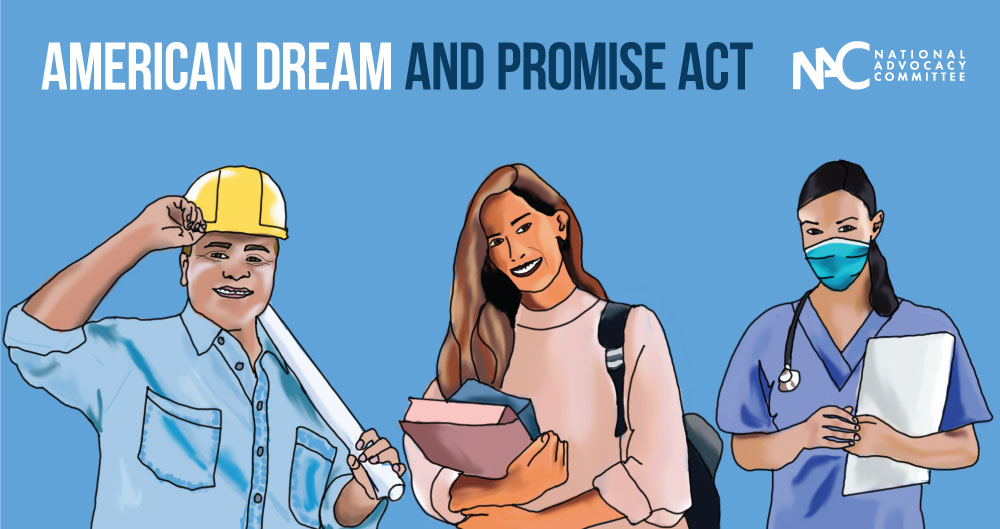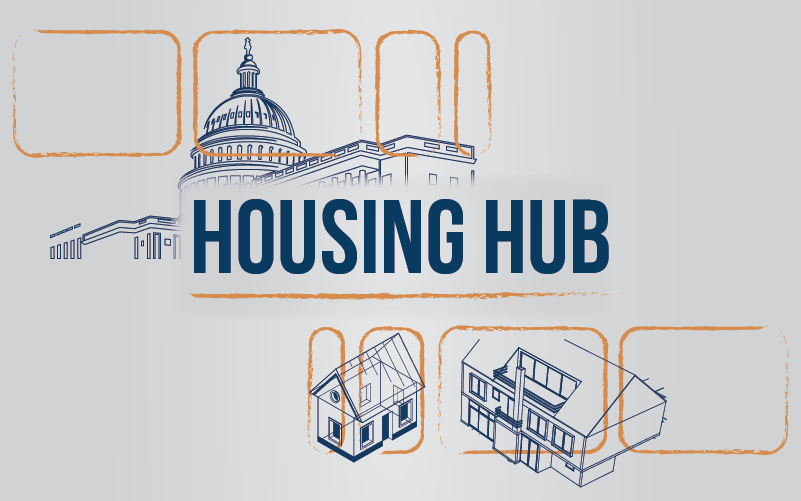DREAMers are our family. What are you gonna do about it?
Celebrating NAHREP familia, cultura, politics, and grassroots action
March 25, 2021
Qué onda mi gente?!
Familia. We talk about this word a lot at NAHREP. It’s the powerful center of our lives, the reason we work hard, the reason we breathe. I have a huge extended family, most of which live in the Inland Empire in California. We’re all up on each other’s business all the time. You know how it goes, they loooooove the chisme. But if anyone in the family needs anything, ANYTHING, they’re there before they’re asked to help out. It’s beautiful. If something happens to one person, it’s felt by everyone. It’s family.
But what do you define as family? Is it just your blood relatives? Your friends? Your business? Your NAHREP familia? What about your fellow Latinos in the U.S.? What about Latino immigrants, DREAMers? The issue of immigration has been a dividing issue for decades. It has become a partisan issue over the years when historically it wasn’t. Immigrant labor has always been essential to U.S. economic growth and the business community has not swayed on this. Amnesty was passed during the Reagan Administration and President Bush came very close to passing comprehensive immigration reform. Immigration is good for business and it is good for the economy. The conversation, however, has been hijacked. There’s no other way to put it.
Today’s rhetoric surrounding immigration has been used as a way to ignite xenophobia and anti-Latino sentiment in the U.S. So when they talk about immigration and you’re all feeling high and mighty about your citizenship status, they’re talking about you too. Let’s be real. They way politicians have described immigrants as criminals, as those with “calves the size of cantaloupes”, it’s an outlet to express racist sentiments about Latinos as a whole. They’re talking about our family. So what are you going to do about it?

The American Dream and Promise Act passes in the U.S. House of Representatives with bipartisan support
There is no question that immigrants are the back-bone of America’s economy. In all sectors of employment, TPS and DACA have been essential to our nation’s labor force. Serving as doctors in our hospitals to farmworkers in our agricultural fields, TPS and DACA recipients have ensured the continued health and function of our country. According to the Center for Migration Studies, 43,500 DACA recipients work in the healthcare industry and 130,000 TPS holders are essential workers. TPS recipients contribute a combined $4.5 billion in pre-tax wages and income annually to our nation’s GDP and more than $6.9 billion to Social Security and Medicare.
Last week, the U.S. House of Representatives passed the American Dream and Promise Act of 2021, previously known as the Dream Act, with bipartisan support. The Dream Act has historically had support on both sides of the aisle since it was first introduced in Congress in 2001. This year, the following Republicans voted in favor of the bill, despite partisan pressures:
- Representative Don Bacon (NE)
- Representative David Valadao (CA)
- Representative Fred Upton (MI)
- Representative Dan Newhouse (WA)
- Representative Brian Fitzpatrick (PA)
- Representative Chris Smith (NJ)
- Representative Maria Elvira Salazar (FL)
- Representative Carlos Giménez (FL)
- Representative Mario Díaz-Balart (FL)
A huge thank you to all of them and, of course, the bill’s champions Representative Lucille Roybal-Allard (CA) and Representative Linda Sanchez (CA) and the entire Congressional Hispanic Caucus for getting this bill to the finish line. And now, it goes on to the Senate.
What does the American Dream and Promise Act do?
DREAMers: The bill would give Dreamers the opportunity to apply for “conditional permanent residency.” Permanent residency would be granted if they:
- Arrived in the US before turning 18 and have lived in the US for at least four years.
- Have a clean record, a high school diploma or GED, or be enrolled in a program to get either one.
- Pass a background check and other eligibility requirements.
This “conditional status” designation would last for 10 years before they could apply for citizenship, but they would be allowed to work in the meantime. There would be other ways for DREAMers to be able to apply for a green card at any time, including serving in the military for two years, working for three years, or getting a degree from a higher education institution, or be at least two years through a bachelor’s or technical program.
TPS and DED Recipients: The bill would allow Temporary Protected Status (TPS) and Deferred Enforced Departure (DED) holders to apply for permanent residency status. TPS and DED holders will be eligible under the law if they:
- Have been living in the country at least three years.
- Were eligible for TPS on September 1, 2017 or for DED status on January 20, 2021.
After five years, TPS and DED recipients would be eligible to able to apply for citizenship.
While the American Dream and Promise Act has now passed the U.S. House of Representatives, it still faces an uphill battle in the U.S. Senate. We urge you to take action by encouraging your U.S. Senator to co-sponsor this bill and prioritize protecting the immigrants who help build America.

About Noerena Limón
Noerena Limón is NAHREP’s Executive Vice President of Public Policy and Industry Relations. Noerena heads the organization’s policy and advocacy efforts on issues ranging from homeownership, housing inventory, credit access and immigration.
Prior to joining NAHREP, Noerena spent six years at the Consumer Financial Protection Bureau (CFPB) and served as a political appointee under President Obama in the White House Office of Political Affairs.




